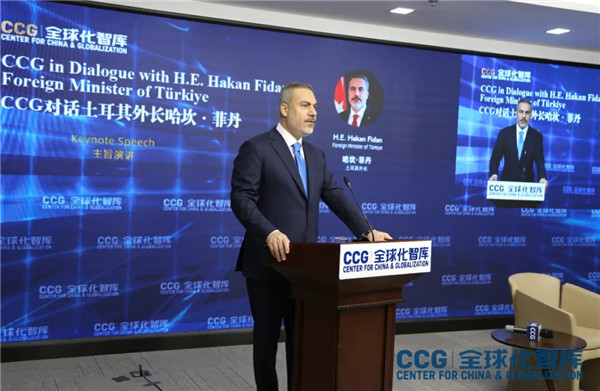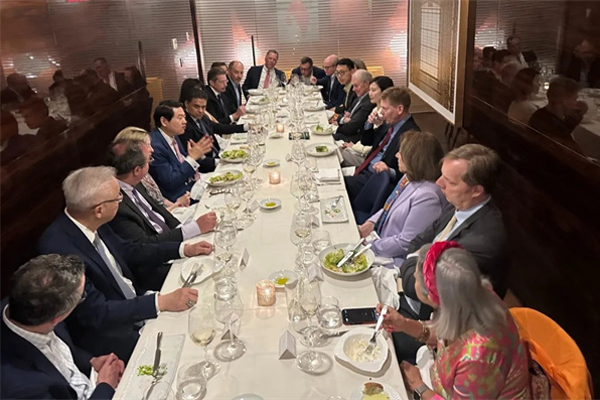CCG Visits UN to explore the sustainable development
On May 6th and 7th, the CCG expert delegation visited four UN agencies at the UN Headquarters in New York City, including the Department of Economic and Social Affairs, the UN Secretariat, the NGO/DPI Executive Committee and the UN Office for South-South Cooperation.
As one stop of CCG US journey to conduct “track II diplomacy”, the delegation made their efforts to advance the relations between China and United Nations and fulfill its role as special consultative status awarded last year.
CCG representatives held in-depth discussions with relevant officials on important international issues, such as the 2030 Agenda for Sustainable Development, multilateral cooperation, global governance and globalization trends, among others. Whilst in New York, the CCG delegation also visited the National Committee on US-China Relations, where they held discussions with President Stephen A. Orlins on Sino-US economic negotiations, trade and investment.
Last year, CCG was officially granted “Special Consultative Status” with the Economic and Social Council of the United Nations (ECOSOC), as one of few Chinese NGOs and the only Chinese think tank to have gained this status. With its new status, CCG now has the right and obligation to play a more active role in international affairs and further engage with UN agencies. This visit provided the opportunity for CCG to strengthen its relationship with the UN, and also show the remarkable progress Chinese think tanks have made in expanding their presence in global governance mechanisms.
1. CCG meets with UN Assistant Secretary-General at UN Headquarters
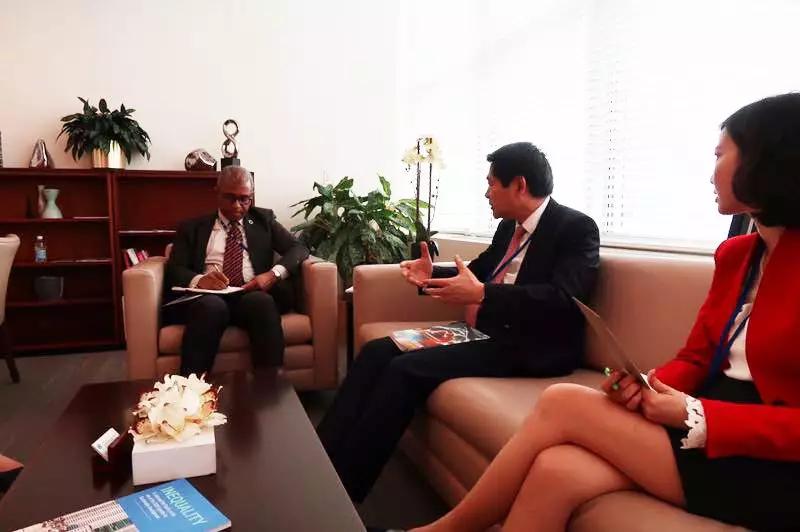
On May 6th, the CCG expert delegation met with Elliott Harris, Assistant Secretary-General for Economic Development and Chief Economist to discuss future cooperation with the Department of Economic and Social Affairs.

Mr. Elliott Harris was appointed as Assistant Secretary-General for Economic Development and Chief Economist on April 2nd, 2018. He has over 25 years of international experience in the fields of international economics and development policy analysis, coupled with knowledge of the United Nations system, multilateral and inter–agency coordination processes. Prior to his appointment, Mr. Harris served as Assistant Secretary-General and Head of the New York Office of the United Nations Environment Programme (UNEP), Special Representative to the United Nations of the International Monetary Fund (IMF) and Adviser in the Policy Development and Review Department.
2. CCG visits UN Office for South-South Cooperation (UNOSSC)
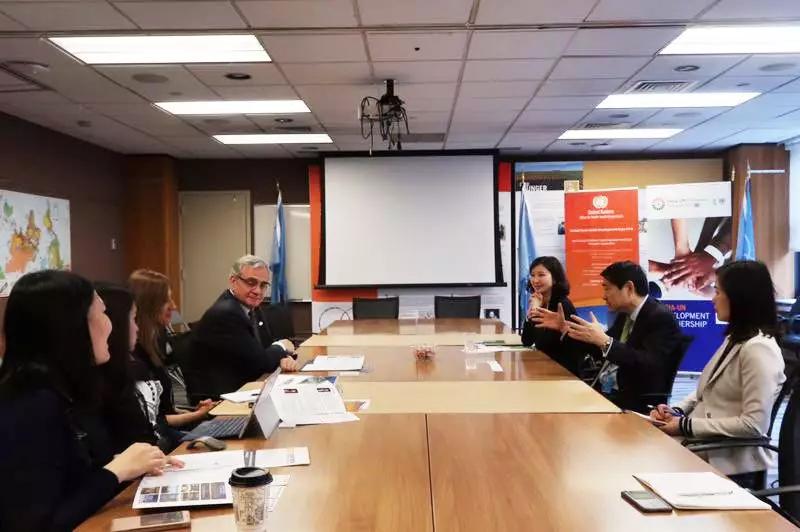
On May 7th, the CCG expert delegation visited the United Nations Office for South-South Cooperation (UNOSSC) and held an exchange with Jorge Chediek, Director and Envoy of UNOSSC, on potential future cooperation between CCG and UNOSSC on UN programmes.
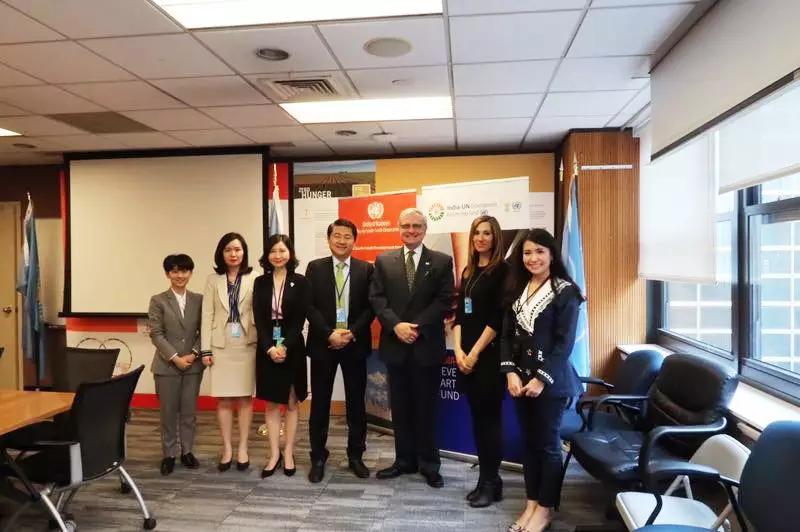
UNOSSC is a broad framework of collaboration among countries of the South and the core agency coordinating UN bodies and other international development institutions on South-South cooperation. The office makes good use of its networks and experience in policy-making to support and improve South-South cooperation.
3. CCG visits the UN Department of Economic and Social Affairs (UNDESA)

On May 6th, the CCG expert delegation visited the United Nations Department of Economic and Social Affairs and had a constructive conversation with Lu Haitian, Chief of the Capacity Development Programme Management Office of UNDESA, where plans were formulated for future cooperation.
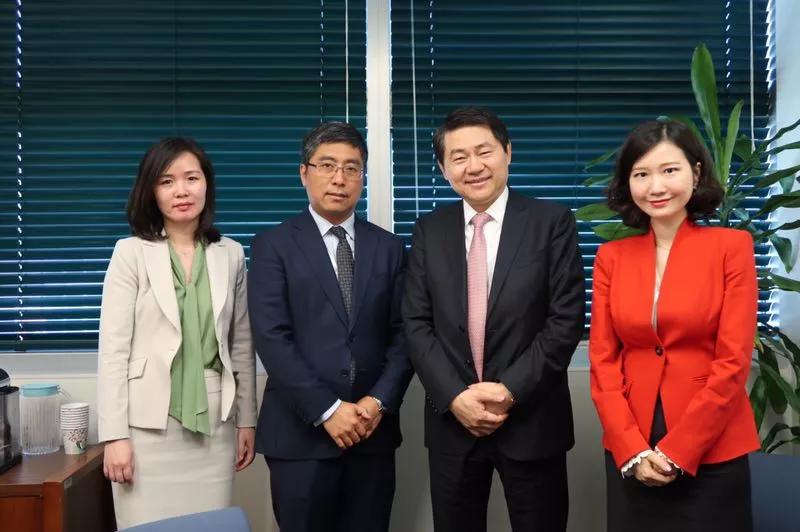
Based at the UN Headquarters in New York, UNDESA is the leading development arm of the UN Secretariat. Its Divisions and Offices work together towards a common goal to promote the social, economic and environmental development of all countries. Based on the 2030 Agenda for Sustainable Development and 17 Sustainable Development Goals, it deals with issues of poverty reduction, human rights, development financing, climate change and so on, and provides strategic support to the effective translation of the outcomes of intergovernmental processes in the areas of economic, social and environmental development. The Capacity Development Programme Management Office provides policy advisory services and other assistance for UNDESA’s capacity development work and helps to coordinate the cooperation among UN bodies.
4. CCG visits UN NGO/DPI Executive Committee
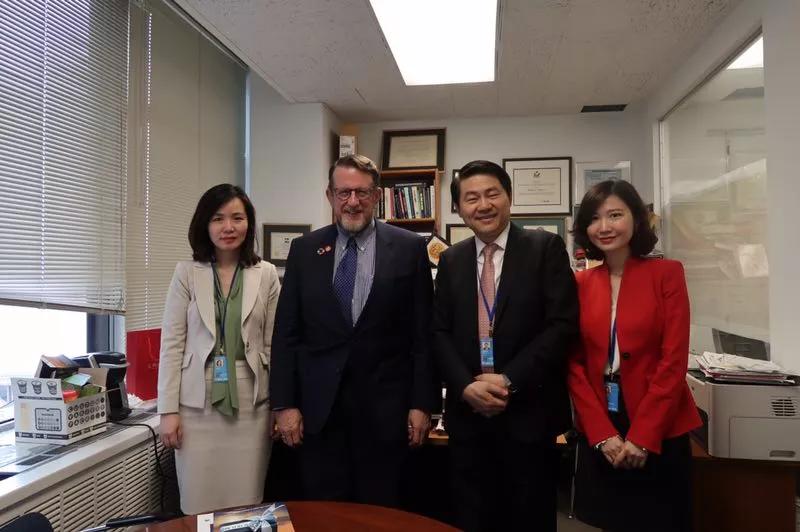
Also on May 6th, the CCG expert delegation visited the United Nations NGO/DPI Executive Committee and met with the president, Bruce Knotts. The CCG delegation and Mr. Knotts spoke about relations between the UN and NGOs and discussed future cooperation opportunities and scope for CCG at the UN. Mr. Knotts previously worked in Saudi Arabia and led on World Bank projects. In 1984, he became a diplomat in the U.S. State Department based at the UN. In 2008, Mr. Knotts was appointed as the president of UN NGO/DPI Executive Committee and the Director of Unitarian Universalist United Nations Office after his retirement from the State Department.
The Executive Committee was founded to promote a closer working relationship between the UN and NGOs associated with UNDPI and acts as a liaison between the NGO community and UN. In partnership with the UNDPI, the Executive Committee organizes the annual UNDPI NGO Conference, the largest annual meeting for NGOs, which increases public understanding of the United Nations critical efforts on issues of human rights, economic and social development, the environment, the rule of law and peace-building. Every year, more than 1,500 representatives of NGOs from all over the world attend the conference to discuss about the urgent problems related to UN and NGOs.
CCG is proud to be at the forefront of Chinese NGO engagement with the UN. CCG pays close attention to international developments and remains committed to promoting international exchanges. “Special Consultative Status” is the core of formal relationships between UN and social organizations, and is an important path for NGOs to be more actively involved in UN program and initiatives.
CCG’s new status is representative of the growing international influence of Chinese societal organizations, and provides a new model and more possibilities for Chinese think tanks to participate in UN affairs and international cooperation initiatives.
In the future, CCG will take more practical actions to exercise this status and fulfill its obligations as a leading non-governmental Chinese think tank. CCG seeks to actively drive Chinese think tanks to expand international engagement and participate in global governance. Through its mission and this commitment, CCG will help enable the international community to better understand the efforts of Chinese think tanks and further enhance their international presence.
LocationUnited States

